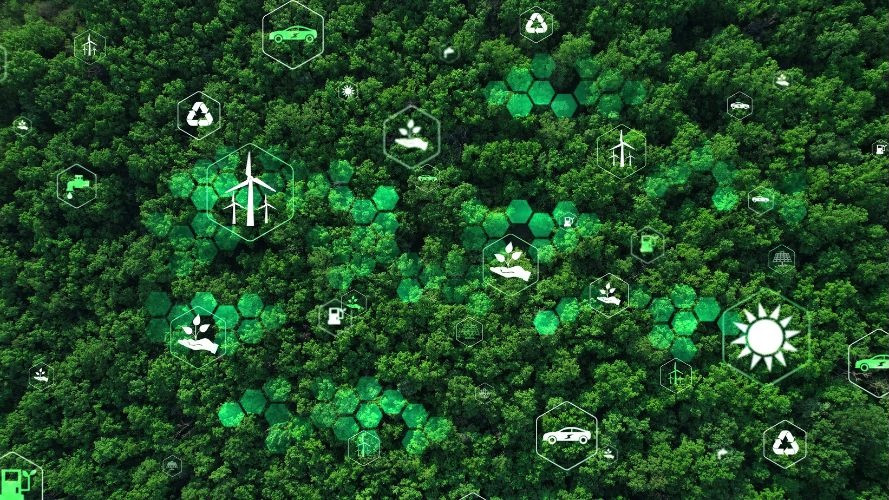Climate Corporate Data Accountability Act (SB 253)
California’s Senate Bill 253 (SB 253), approved in 2023 and amended by SB 219, aims to increase transparency and accountability surrounding corporate greenhouse gas (GHG) emissions, criteria pollutants, and toxic air contaminants. The bill requires companies that meet certain revenue criteria to publicly report and verify their direct and indirect GHG emissions data. This legislative initiative, in conjunction with SB 261, aligns with California’s greater climate goals which seek to foster increased clarity surrounding climate initiatives and motivate businesses to take stronger action towards their sustainability and emissions goals.
The Latest News and Updates
- October 2025: The California Air Resources Board (CARB) adjusted its timeline for developing climate disclosure rules under SB 253 and SB 261 to the first quarter in 2026. CARB explained that the extension allows more time to review public comments and refine key definitions and reporting processes. The agency emphasized its goal of ensuring that the final regulations are clear and workable for companies of different sizes and industries.
- November 2025: During the November 18th Workshop, CARB revised their proposed definition of "doing business" in California1. For those subject to SB 253, CARB also proposed moving the annual reporting timeline for GHG emissions from June 30th to August 10th and adjusts the first reporting cycle to align with the entity's fiscal year end.
Who Must Comply?
These requirements are applicable to any private or public entity that does business in California and has a revenue that exceeds $1 billion USD. Historically, public companies have been held to a certain standard of financial reporting; however, SB 253 expands these standards to include environmental disclosures for both public and private businesses. The listed criteria are designed to target large entities that are expected to have a more significant environmental impact than businesses that do not meet the revenue criteria. It is estimated that SB 253 will be applicable to more than 5,000 companies that are currently doing business within California.
When Does Compliance Begin?
For those subject to SB 253, CARB proposed moving the annual reporting timeline for GHG emissions from June 30th to August 10th and adjusts the first reporting cycle to align with the entity's fiscal year end.
First Year Reporting:
For in-scope entities, the first-year reporting provides a phased approach, adjusting to their fiscal year end. For the first year, each entity will have at least six months to submit their report.
| Fiscal Year End | Which Year to Use? |
| January 1 - February 1, 2026 | Use FY Ending 2026 |
| February 2 - December 31, 2026 | Use FY Ending 2025 |
What Requirements Must be Met?
The focus of SB 253 is for large entities to collect, verify, and disclose their GHG emissions in a consistent, verifiable manner.
1. Scope 1, 2, and 3 GHG Emissions:
Covered entities must calculate all direct and indirect GHG emissions in compliance with a globally accepted reporting standard, such as the GHG Protocol, and in an annual timeframe moving forward.
- For Scope 1 and 2 emissions, this data must be calculated and reported starting in 2026 with prior fiscal year data.
- Scope 3 must be disclosed in 2027 with prior fiscal year (2026) emissions data.
2. Third-Party Assurance:
To demonstrate data accuracy and provide confidence in the results, SB 253 mandates third-party assurance. The timing and level of assurance required is designed to increase, reflecting maturity of the covered entities’ emissions programs. During their November workshop, CARB stated that there would be no assurance for first year reports. While CARB has yet to issue an updated assurance timeline following the workshop, the initial requirements are as follows:
- Scope 1 and 2 emissions must receive reasonable assurance beginning in 2030 (2029 data).
- Scope 3 emissions must receive limited assurance beginning in 2030 (2029 data).
3. Public Disclosure:
Once emissions have been calculated and received assurance, the results must be publicly disclosed. While the CARB is still discussing how and where to publish, we recommend publication on the reporting entity’s website. More information is expected to be published by CARB in Q1 2026.
Why Does This Matter?
With growing demand for transparency and accountability of a company’s climate-related impacts, it is important for organizations to present information that is accurate, verifiable, and consistent. The implications for failing to respond not only present financial penalties but can also influence stakeholders’ decision-making strategies and have lasting negative reputational impacts. By assessing such information, companies are able to better understand their impacts and leverage the data to inform their own sustainability strategy, demonstrating leadership and maturity of their programs.
Ready to get Started?
Discover how Antea Group can assist you with creating thorough and assurance-ready GHG inventories and provide support throughout the audit process itself.
Learn more about our Greenhouse Gas and Climate Change Advisory Services.
Footnote:
1The California Revenue and Taxation Code (RTC) Section 23101 defines "Doing Business." However, the November 2025 recommendation from CARB omits §23101(b)(3-4) relating to property holdings and payroll thresholds.
Therefore, for the purposes of SB 253 and SB 261, an entity is considered to be "doing business" if it:
-
§ 23101 (a): Engages in any transaction for the purpose of financial gain within California; and
-
§ 23101 (b): Meets either of the following conditions during any part of the reporting year:
-
Organized or commercially domiciled in California; or
-
The California sales exceed certain thresholds (e.g., $735,019 in 2024), including sales by an agent or independent contractor of the entity.
-
Want more news and insights like this?
Stay in the loop with our monthly e-newsletter, The New Leaf. We’re here to keep you informed, enlightened, and entertained with the latest in EHS and sustainability. Don’t miss out on the insights and stories that matter to you!✨ Ready to turn over a new leaf? Sign up now!





